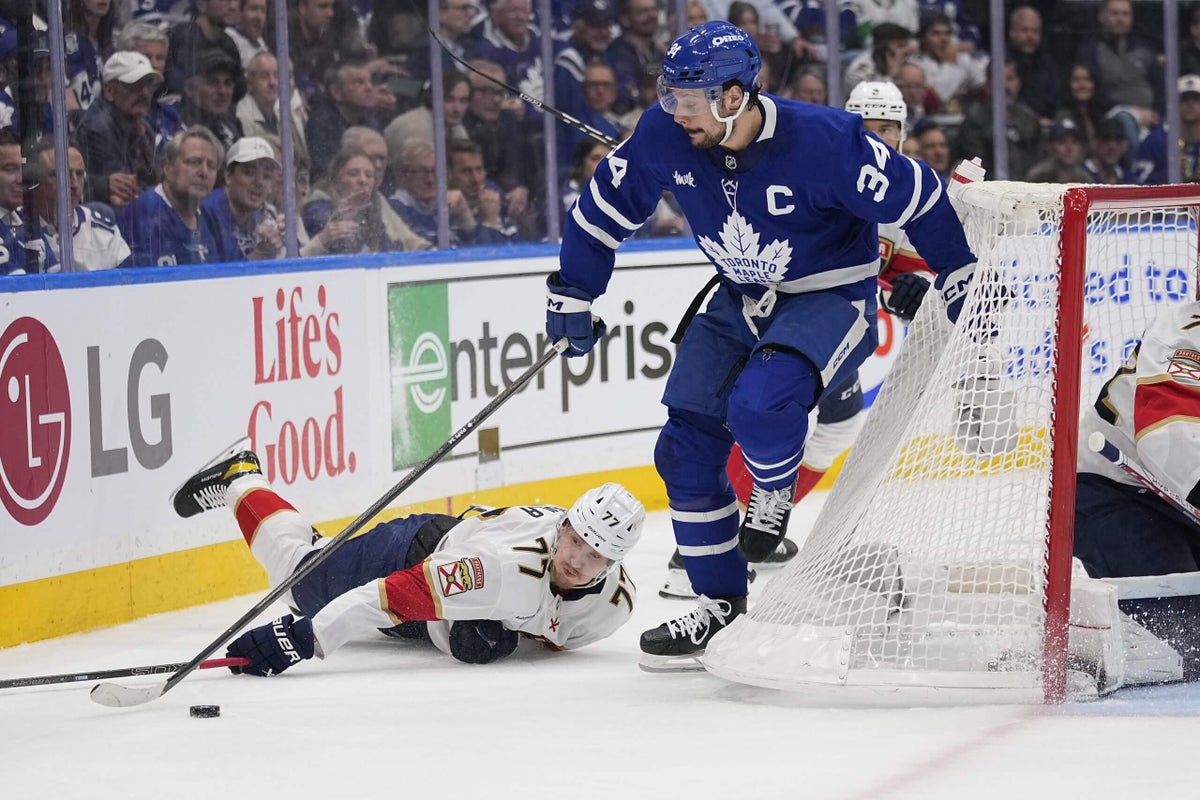The Toronto Maple Leafs find themselves in a familiar, yet unenviable, position: facing elimination after a disheartening playoff loss. The question on every Leafs fan’s mind is, can they respond? This article delves into the data to explore the Leafs’ history of bouncing back from playoff blowouts, especially against a tough opponent like the Florida Panthers. The ability to rebound is crucial for any team with Stanley Cup aspirations, and the Leafs’ track record in “response games” offers a glimmer of hope amidst the cynicism.
We’ll examine the Leafs’ tendency to suffer significant losses compared to other successful NHL franchises. We’ll also analyze their performance in the games immediately following these defeats. Can they prove this year is different? We’ll look at Coach Craig Berube’s track record of guiding teams to respond after tough losses. Finally, we will assess their chances of forcing a Game 7 and proving their worth when everything is on the line.
The Maple Leafs’ Troubled Playoff History
Bad games happen, but the frequency with which the Maple Leafs get blown out in the playoffs is alarming. Since 2007-08, the Leafs have lost seven playoff games by four or more goals, a staggering 9.3% of their total playoff games. This ranks as the fifth-worst mark in the league, tied with Montreal. Consider what The Athletic says:
Toronto, in 75 playoff games, has seven such losses, or 9.3 percent. That is tied for the fifth-worst mark in the league with Montreal, trailing only Winnipeg (11.7 percent), Florida (11.4 percent), New Jersey (11.1 percent) and Philadelphia (9.8 percent).
In comparison, championship-caliber teams rarely suffer such significant defeats. Teams like Detroit, Washington, and Boston experience blowout losses far less frequently. This inability to avoid lopsided losses has plagued the Leafs for years and contributed to their playoff failures.
What Championship Teams Do
Successful NHL teams avoid frequent blowouts. From 2008, franchises with championship pedigrees have put up a stinker in just 4.9 percent of games. In Stanley Cup-winning years, that rate drops to 3.5 percent. For example:
- Detroit: 1.9 percent
- Washington: 2.5 percent
- Boston: 3.7 percent
- St. Louis: 4.2 percent
- Chicago: 4.4 percent
The ability to minimize these losses is a hallmark of consistent winners. While occasional bad games are inevitable, championship teams limit the damage and prevent these losses from becoming a recurring theme.
The Importance of a Strong Response
The ability to respond strongly after a loss is a defining characteristic of successful teams. As the article states, “The best of the best do not let a stinker define them; they exact revenge for it and even the score.” The Leafs have shown flashes of this ability, posting a 5-1 record in games following a significant loss since 2008. This “response game” win percentage of 0.833 trails only Detroit, Dallas, and San Jose during that span.
Response Games: Data Tells a Story
Teams that make deep playoff runs excel in response games. Teams that make the final four have a 0.642 win percentage in response games compared to a 0.426 win percentage for teams that lose in the opening two rounds. Stanley Cup champions in particular are at 0.786. According to the data in this article:
Teams that make the final four have a 0.642 win percentage in response games compared to a 0.426 win percentage for teams that lose in the opening two rounds. Stanley Cup champions in particular are at 0.786.
The current favorites, the Stars, Oilers, and Panthers, are a perfect 4-0 in response games this year. This highlights the importance of bouncing back from adversity for teams with championship aspirations.
The Berube Effect: A History of Responding
Coach Craig Berube’s history suggests he can guide the Leafs to respond effectively. His tenure with the St. Louis Blues included notable examples of bouncing back from tough losses during their 2019 Stanley Cup run. The article highlights this:
All season, all we’ve heard is how this team is different and part of that is the presence of Craig Berube behind the bench. Look back at his work in the 2019 Stanley Cup Final: In Game 3 at home, the Blues lost 7-2 to the Bruins. The next game they won 4-2. In Game 6 at home, with a chance to win it all, the Blues lost 5-1. You know what happened next, and the moment in front of Berube now offers a chance to add to that legacy.
Berube’s experience in leading teams to rebound from adversity could be a crucial factor in the Leafs’ ability to respond against the Panthers.
Conclusion: Can the Leafs Change the Narrative?
The Toronto Maple Leafs have a chance to rewrite their narrative. While their history of playoff blowouts is concerning, their ability to respond in the following game offers a glimmer of hope. The presence of Coach Craig Berube, who has a proven track record of guiding teams through adversity, could be a significant asset.
Ultimately, the Leafs’ success hinges on their ability to put their past failures behind them and deliver a strong performance when it matters most. The data suggests they are capable of responding. Now, they must execute. The choice is theirs: wilt under pressure or rise to the occasion and prove their worth.

Leave a Reply